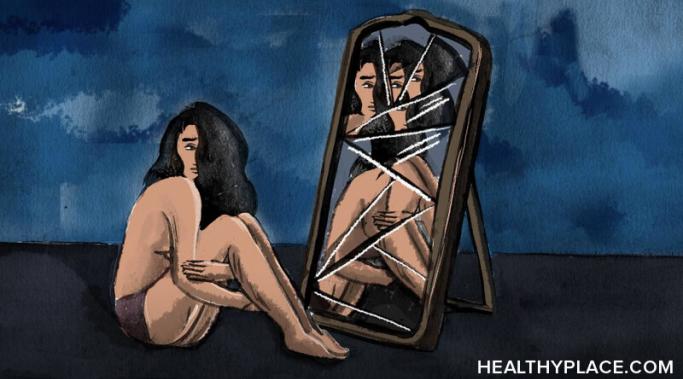Healing borderline personality disorder (BPD) seemed like a vague concept. I used to romanticize healing, to think of it as this linear journey where each step forward meant fewer breakdowns and more sunshine. But in my experience, living with BPD feels like the mind is a treacherous landscape, and talk therapy just isn't enough. It's one thing to talk about wanting to be free of your triggers and to imagine yourself as some serene, enlightened version of yourself. But it's a whole different thing to feel that weight lift off you in real time. While difficult, healing borderline personality disorder is possible.
Borderline Symptoms
I'm worn out from my borderline personality disorder (BPD), pushing me into hyperproductivity and distorting my sense of mental wellness. I used to think my worth was tied to my output, but now I see that this endless chase for productivity is actually undermining my mental health. This idea from borderline was making my mental wellness more fragmented.
Masking borderline personality disorder (BPD) is a high-wire act, teetering between societal acceptance and personal exhaustion. It's an everyday performance where I suppress traits that might draw judgment, becoming a chameleon to blend into what's deemed acceptable. Borderline personality disorder masking is draining, leaving me feeling like I've been hit by a truck by the time I get home. The car ride home is a solitary purge of pent-up frustration and angst.
Overcoming codependency is a significant milestone in anyone's journey. Growing up, I felt like my emotions were too complex, strong, or nuanced to share. The community I was raised in didn't encourage open emotional expression, so I kept my feelings to myself. This environment is particularly detrimental for someone with borderline personality disorder (BPD), where the ability to express and validate emotions is crucial for mental stability and self-understanding. But I've found I can overcome codependency.
Something I struggle with in my close relationships is splitting in borderline personality disorder (BPD). The closer I get to someone, the harder it hits when I feel disappointed or slighted by them. Whether this slight is real or imagined, I can't seem to keep my passive-aggressive thoughts and comments to myself. The borderline splitting episode takes over, and suddenly, everything is black or white, with no shades of gray in sight.
Goal-setting with borderline personality disorder can be difficult. Living with borderline personality disorder (BPD) feels like being trapped in an endless loop, where the same mistakes replay like a broken record. This seems to be true for me, especially when setting goals. Without smarter goal-setting in BPD, living up to my dreams and aspirations can feel like trying to catch a cloud and pin it down.
Emotional neglect stands out as a significant borderline personality disorder (BPD) cause. Looking back on my childhood, I can clearly see how moments of emotional neglect contributed to my struggles with borderline PD. Below are examples of daily symptoms and their root incidents.
Living with borderline personality disorder (BPD) often means grappling with borderline PD mood swings that can swiftly turn my world upside down. When these BPD mood swings hit, thoughts become tangled in cognitive distortions, and black-and-white thinking takes hold, making it difficult to see shades of gray or to check the validity of my assumptions. In other words, BPD mood swings are a rapid descent into a world where worst-case scenarios feel like certainties.
Understanding my adult separation anxiety in borderline personality disorder (BPD) involves delving into its complexities and origins. My adult separation anxiety in BPD is more than just feeling uneasy when separated from loved ones; it's a deep-seated fear of abandonment that I can trace back to childhood experiences of neglect, loss, or inconsistent caregiving. These early experiences created a heightened sensitivity to perceived threats of rejection or abandonment in my adult relationships.
For those grappling with borderline personality disorder (BPD), the aftermath of a BPD breakup can feel excruciating. The aftermath of a BPD breakup isn't just about saying goodbye to a partner; it's a deep, existential unraveling. The experience of a BPD breakup is akin to mourning a death, where I am forced to confront the fragments of myself and painstakingly rebuild from the ground up. After a BPD breakup, I've not only lost a loved one, but I've also lost myself.









